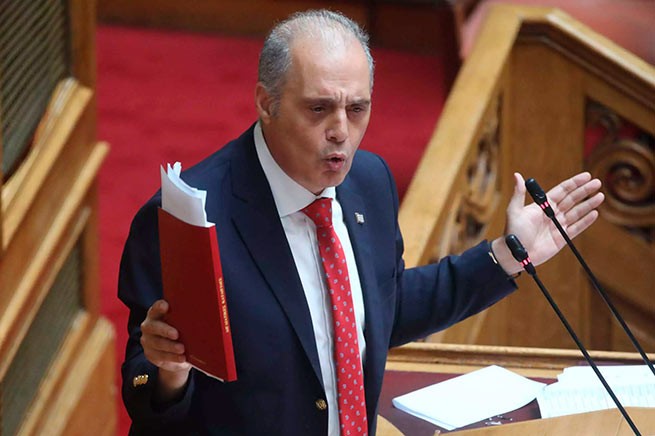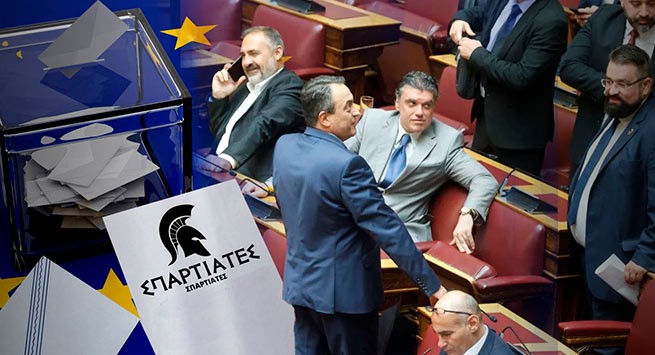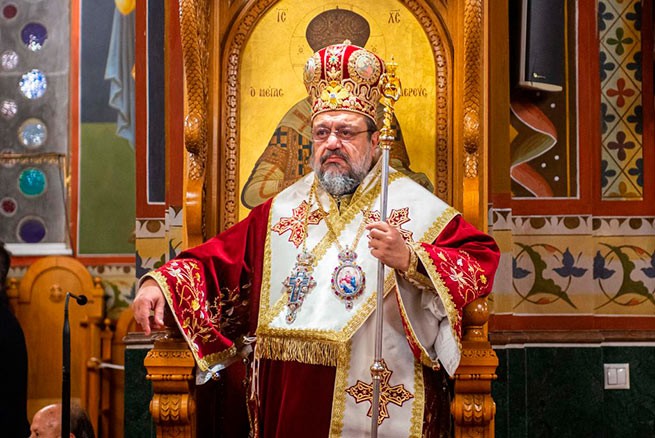According to the updated criminal code adopted by the Greek Parliament on November 11, 2021, distributing “fake news” is a criminal offense.
The new law could lead to the imprisonment of journalists. Human Rights Watch calls on the Greek government to immediately repeal this provision, which is incompatible with freedom of expression and media freedom. Changes to the Criminal Code makes it a criminal offense to spread fake news because it “has the potential to cause anxiety or fear in society or undermine confidence in the national economy, national defense, or public health,” and is punishable by up to five years in prison.
Law was published in the “Government Gazette” on November 12, after which it entered into force. There is a serious risk that this provision could be used to punish media professionals, civil society and anyone who criticizes or disagrees with government policies, creating a deterrent effect on free speech and media freedom.
***
“In Greece, you face imprisonment for expressing your opinion on important issues of public interest if the government says it’s not true,” said Eva Kosse, a Greek activist for Human Rights Watch. “Criminal sanctions can make journalists and virtually everyone else afraid to cover important issues or discuss issues such as the fight against Covid-19, migration or government economic policy.”
The new criminal measure comes at a time of growing concerns over media freedom and the rule of law in Greece. In April, Reporters Without Borders (RSF) expressed concern about that media freedom in the country is rapidly deteriorating, including the rejection of government advertising in critical media, allegations of government censorship, and violence and harassment journalists from the police during the demonstrations. Greece fell five places in the global press freedom index, ranking third from the bottom among the countries of the European Union.
See also: La Libre: “The Mitsotakis government controls 80% of the media”
Article 191 of the amended Penal Code establishes penalties for “those who, publicly or via the Internet, disseminate false news in any way that may cause anxiety or fear in the public or undermine public confidence in the national economy, national defense or public health” … The article states that violators “shall be punished with imprisonment for at least three months and a fine,” and also adds that “[если] the act was re-committed through the press or on the internet, the perpetrator is liable to imprisonment for up to at least six months and a fine. ”
The publisher or owner of a responsible media outlet can also face up to five years in prison and fines. The crime is qualified as a misdemeanor, which is punishable by imprisonment for up to five years under Greek law, unless otherwise specified by law. The new article 191 is based on a similar offense included in the 2019 Criminal Code.
Article 191 replaces the provision introduced in 2019, establishing criminal penalties for “those who publicly or via the Internet disseminate false news in any way, causing fear in an indefinite number of people or in a certain circle or category of persons, who are thus forced to commit unplanned actions or cancel them with the risk of causing damage to the economy, tourism or the country’s defense or violation of its international relations ”, is punishable by up to three years’ imprisonment or a fine.
The new text does not define what fake news is, what standards should be used to determine if something is fake, or that any false information circulated on the Internet causes real harm. Nor does it refer to the need to respect the right to freedom of expression or other human rights obligations.
Before the amendment was adopted, Media Freedom Rapid Response, a pan-European network of nongovernmental groups on questions freedom of the media, called on the Ministry of Justice repeal the law. “We believe that the vague definition of the bill and punitive sanctions will undermine press freedom and have a deterrent effect at a time when independent journalism is already under pressure in Greece. … [] Authorities’ passage of arbitrary legislation that empowers regulators or prosecutors to determine whether it is true, not false, and to impose penalties on the press is the wrong reaction and will do more harm than good. ”
10 November Union of Athens Daily Newspapers (ESIEA) called on revoke the law as too vague.
The International Press Institute reported in October 2020 that during the Covid-19 outbreak 17 countries the world pushed through the rules of “fake news”. The only country in the European Union that has done this is Hungary. which introduced criminal liability in March 2020 for spreading “fake news” or participating in “fanning fear” that is believed to undermine the government’s fight against Covid-19 through fines and jail sentences. By July 2020, the Hungarian police had opened 134 criminal cases for “fanning fear”.
Due to the fact that Greece is facing intense international criticism in ties with resistance and broader human rights issues, associated with migration and asylum, the government took action to silence groups whose messages shed light on these violations. In July report on the rule of law in EU-wide The European Commission noted the narrowing of opportunities in Greece for groups working with migrants and asylum seekers.
Greece is obliged to respect the right to freedom of expression in accordance with Article 11 of the EU Charter of Fundamental Rights and Article 10 of the European Convention on Human Rights to which it is a party. Under international human rights law, governments have a duty to protect the right to freedom of expression, including the right to seek, receive and impart information of any kind. Governments may impose restrictions on freedom of expression only if those restrictions are prescribed by law and are strictly necessary and proportionate to the pursuit of a legitimate aim, including the protection of national security, public order, public health or morals, or the rights of others. Any such restrictions must also be written clearly enough so that those who obey the law can understand what is prohibited.
According to Human Rights Watch, the new article of the criminal code falls far short of these standards and does not provide a clear definition of prohibited content.
In September, the President of the European Commission Ursula von der Leyen announced, that in 2022 the Commission will submit European media freedom lawto “guarantee their independence.” The commission should pressure Greece to repeal Article 191, Human Rights Watch said.
“The Greek government must stop imposing censorship on journalists, civil society and the public,” Cosse said. “If he is serious about countering the spread of disinformation, he must demonstrate his commitment to freedom of expression and freedom of the media, rather than silence critics with threats of criminal prosecution.”






More Stories
Greece must transfer the Patriot PAC-3 system to Ukraine with US “guarantees” against the Turkish threat
How will the confiscation of Russian assets affect the global financial system?
TikTok ban in the USA: Americans force the owner company to sell its assets